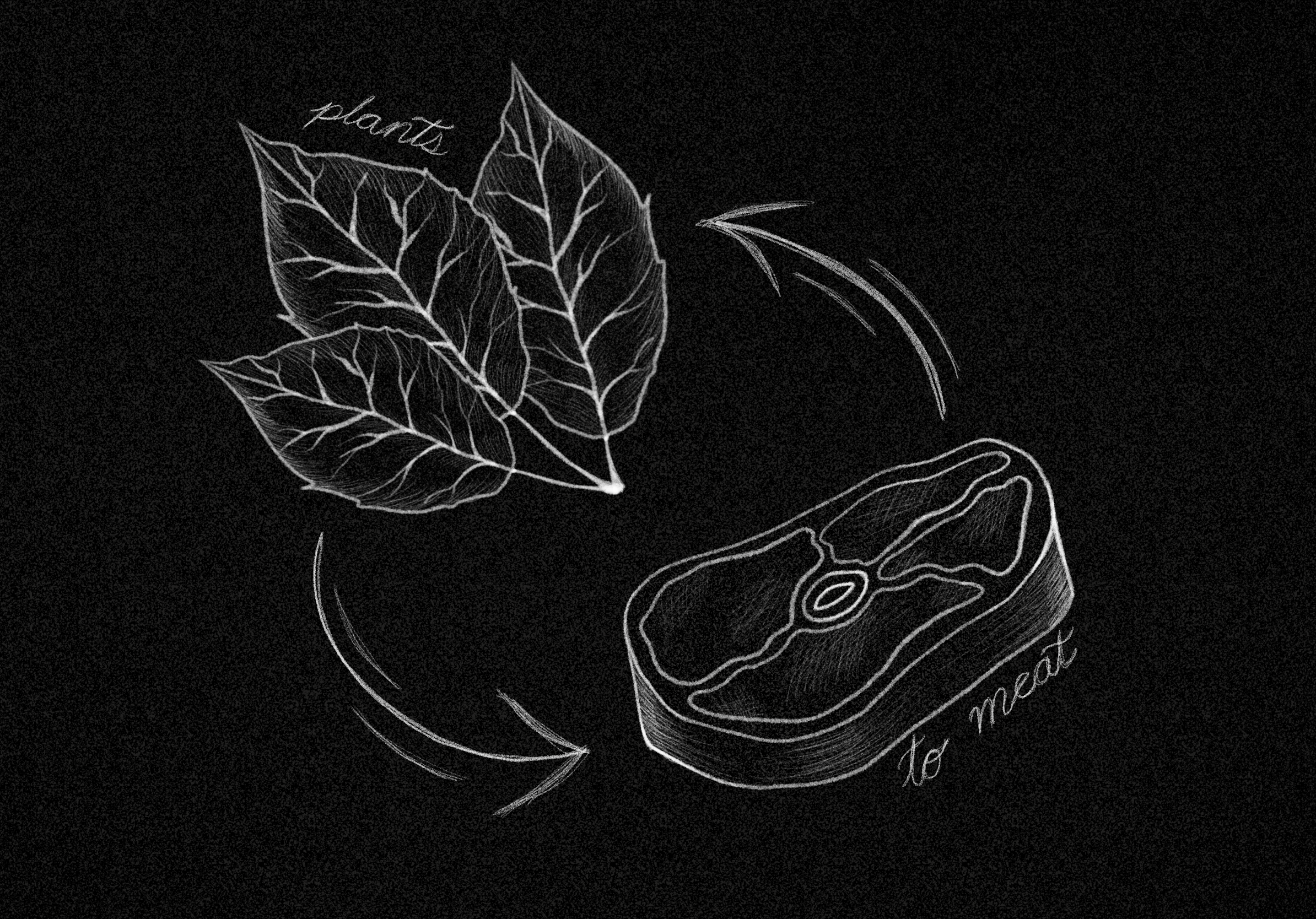According to climate activist Greta Thunberg, eating meat is “stealing her generation’s future”
If we pay close attention to the environmental impact of meat production, we can understand this bold statement as there are many reasons why the meat industry is unsustainable.
First, the water footprint of meat from beef cattle is 15 400 m 3 /ton as a global average.
This is particularly problematic, considering agriculture causes 78 per cent of eutrophication (pollution of water with excessive nutrients). Another interesting fact to highlight is that the global meat consumption is around 350 million tons of meat a year and is expected to be increased as much as another 160 per cent by 2050. This is why a report from the Food and Agricultural Organization of the United Nations (FAO) suggests that 64 per cent of the population will be living in water-stressed areas by 2025, partially due to excessive water use for meat production.
The meat industry also threatens biodiversity. The FAO further reveals that livestock uses 30 per cent of global land, which is very alarming because cattle ranching is the leading reason for deforestation in the Amazon rainforests. What was once habitat for animals, 70 per cent of the forested land in the Amazon is now used for livestock pastures.
The FAO also reports that animal agriculture is responsible for 18 per cent of all greenhouse gases in CO2 equivalent. The livestock sector is also responsible for 65 per cent of the emission of nitrous oxide, another harmful gas with 296 times the global warming potential of CO2. Nitrous oxide is also harmful considering it can stay up 150 years in the atmosphere. It’s also worth noting that most greenhouse gas production results from methane (which is released in the atmosphere when cows do their business), and is a lot more destructive than CO2. Over a 20-year period, methane had a global warming potential of 84 times that of CO2.
There is no doubt that the effects of meat production on the environment are detrimental. Though it is impossible to ask the whole world to turn vegan, there needs to be a reduction of meat consumption on an individual level. For example, Dr. Frank Hu from the Harvard T.H. Chang School of Public Health recommends that we “consider red meat as a luxury and not as a staple food.”
Petrina, a student who has been a vegan for roughly a year, says that she began her vegan diet because of her parents. She realized that “There is a misconception that we need meat to get our daily protein needs, but from my experience, there are so many alternatives like vegetables and beans. Once you get the basics in your fridge, you can build on that,” Petrina emphasizes.
From my personal experience, I was a vegetarian for two years, from 2016 to 2018. I wasn’t well informed nor educated enough to take this step because I had an unhealthy diet that consisted of eating junk food to replace the meat cravings. Today, I no longer identify myself as a vegetarian, but I will make it a new year’s resolution to reduce my meat consumption to identify myself as a flexitarian, someone who eats meat moderately.
Carol Altimas, a pescetarian, shares her experience.
“I always said that I wouldn’t say ‘no’ if someone had prepared [meat] for me as a special meal. Ultimately, it’s not about how perfect I am as a pescatarian, but reducing my impact on the environment by eating less meat,” says Altimas.
We must preserve our remaining resources and reduce our carbon footprint if we want to protect our planet for future generations. Whether it is by becoming vegan, vegetarian, pescatarian or even just limiting your meat consumption — the power is on your plate.
Feature graphic by @the.beta.lab




